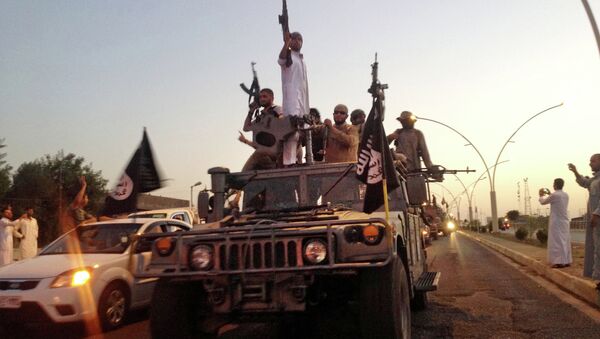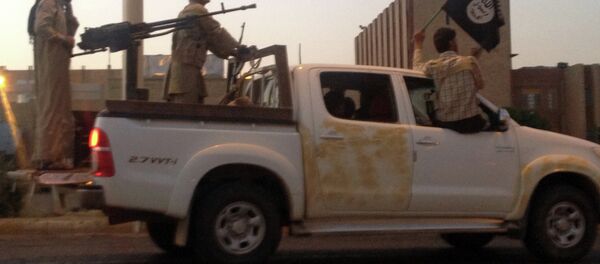Despite the fact Brett McGurk, an envoy for the Global Coalition to Counter the Daesh, describing the offensive launched against extremists in Mosul as “low, steady squeeze,” the progress in operation is going faster than one could have expected, Knights said.
Mosul has recently become the most shelled city by US-Led Coalition in the course of anti-Daesh effort across Iraq and Syria, bearing the palm from Ramadi. Nine of 20 of the coalition’s latest airstrikes targeted Daesh propaganda sites and the group’s manufacturing facilities.
Two US-equipped Kurdish Peshmerga brigades are also prepared to join the fight for the city, Knights added. Other Peshmerga forces are distributed around Mosul’s eastern and northern borders.
The dissent against Daesh is also growing within Mosul itself, Knights continued, citing reports of vigilante brigades fighting against the extremists.
According to figures provided by the Washington Institute for Middle East Policy, there are more than 100,000 former Iraqi servicemen not linked to Daesh in Mosul against seven thousand of active Daesh supporters. The amount of weapons in Mosul is sufficient to equip every citizen of the city with population of 450 thousand people. In case of anti-Daesh uprising, the citizens could reasonably take advantage of extremists.
Under one of possible scenarios, in Knights view, Mosul self-liberators could easily stop the Iraqi government and Kurds at the doorstep of the city and trigger bitter “interfactional” struggle. To what consequences it could lead, we could judge looking at the fate of Beirut, the Leabanon capital that has seen decades of local fights.





